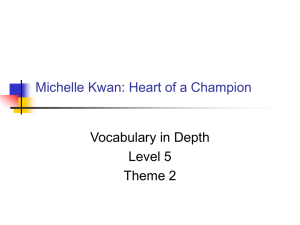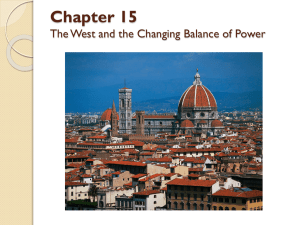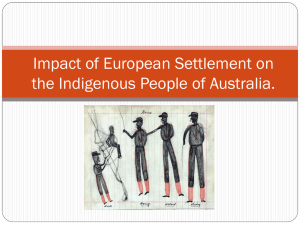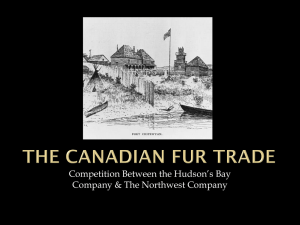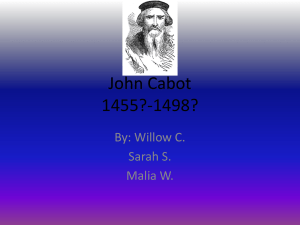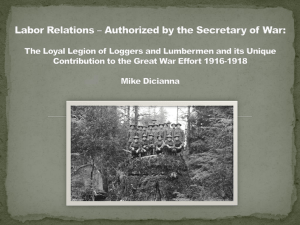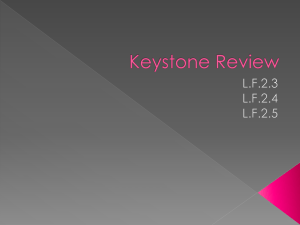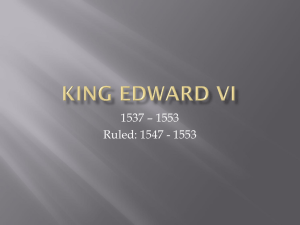Europeans Compete in North America
advertisement
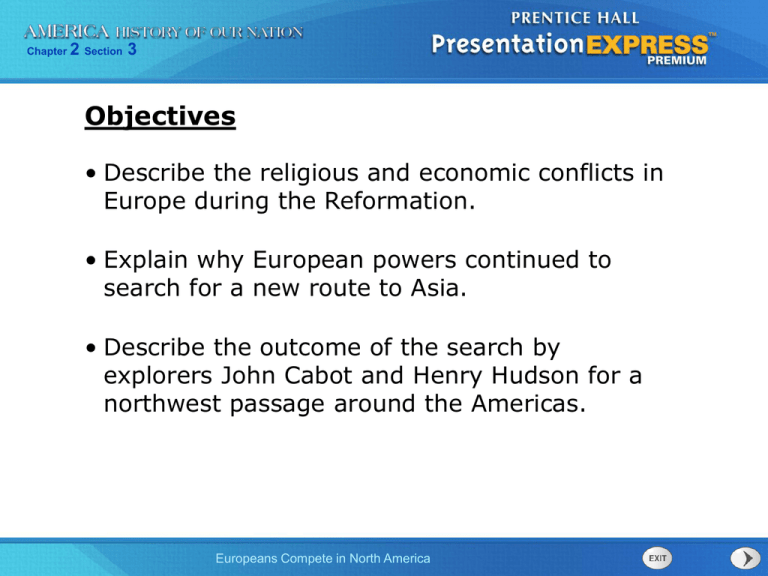
Chapter 2 Section 3 Objectives • Describe the religious and economic conflicts in Europe during the Reformation. • Explain why European powers continued to search for a new route to Asia. • Describe the outcome of the search by explorers John Cabot and Henry Hudson for a northwest passage around the Americas. Europeans Compete in North America Chapter 2 Section 3 Terms and People • mercantilism – a system that held that colonies existed to make the home country wealthy and powerful • John Cabot – an Italian explorer who disappeared while on his second voyage to find a northern route to Asia • northwest passage – a hypothetical sea route from the Atlantic to the Pacific that passed through or around North America • Henry Hudson – an English explorer who attempted to find a northwest passage Europeans Compete in North America Chapter 2 Section 3 How did conflicts in Europe spur exploration in North America? As the appeal of the Reformation increased, the split between the Catholics and the Protestants increased religious and economic tensions in Europe. Catholics Europeans Compete in North America Protestants Chapter 2 Section 3 The Reformation caused religious tensions that inflamed existing rivalries among the nations of Europe. Nations did not feel that they could depend on their allies to protect them. Europeans Compete in North America Chapter 2 Section 3 By 1530, the rulers of Sweden, Denmark, and several European states had split with the Roman Catholic Church. They set up Protestant churches in their countries. Swiss thinker John Calvin influenced the development of Protestant churches in France, Switzerland, Scotland, and the Netherlands. Europeans Compete in North America Chapter 2 Section 3 In England, King Henry VIII joined the side of the Protestants when he sought to divorce his wife, Catherine of Aragon. The pope refused to annul the king’s marriage, so Henry broke with the Catholic church. He set up a Protestant church and named it the Church of England. Europeans Compete in North America Chapter 2 Section 3 King Henry VIII died in 1547, and his son ruled only briefly before he died, too. The throne passed to Mary I, who wanted to restore the Catholic Church in England. But Mary died in 1558, and Elizabeth I, a Protestant, took the throne. Europeans Compete in North America Queen Elizabeth I Chapter 2 Section 3 At this time, Spain and England were rivals because: King Philip II of Spain wanted to make England a Catholic nation again. Europeans Compete in North America The English were raiding Spanish ships for gold from the Americas. England was helping Holland, a Spanish province, try to win its independence. Chapter 2 Section 3 In 1588, King Philip sent 130 ships to England, hoping to force Queen Elizabeth from the throne. English ships met the Spanish ships off the coast of France and sank half of them. Europeans Compete in North America Chapter 2 Section 3 Spain’s defeat changed the balance of power in Europe. Spain’s control of the seas was weakened, so England and France were able to found colonies in the Americas. Europeans Compete in North America Chapter 2 Section 3 England funded an exploration led by John Cabot. Cabot thought a more northern route to Asia would be easier than the route Christopher Columbus had tried. • During his first trip, in 1497, he explored the region around Newfoundland. • During Cabot’s second trip, in 1498, his ships disappeared without a trace. Europeans Compete in North America Chapter 2 Section 3 Europeans soon realized the lands Cabot reached were not Asia, and they financed voyages to the new regions. Explorers from England, France, and Holland set out to find a northwest passage. Europeans Compete in North America Chapter 2 Section 3 The Search for a Northwest Passage Giovanni da Verrazzano • In 1524, this Italian explorer sailed for France, exploring the Atlantic coastal region from North Carolina to Newfoundland. • He found the mouth of the Hudson River and New York Bay. Jacques Cartier • This French explorer made three trips to North America for France. • He discovered the St. Lawrence River and explored it as far as present-day Montreal. Europeans Compete in North America Chapter 2 Section 3 English explorer Henry Hudson made four voyages in search of a northwest passage. After two unsuccessful voyages, Hudson’s English backers gave up on him. However, in 1609, the Dutch financed his third voyage, during which he reached New York and explored the river that today bears his name. Europeans Compete in North America Chapter 2 Section 3 In 1610, the English sponsored Hudson’s fourth voyage, during which his ship got stuck in the icy waters of Hudson Bay. In the spring of 1611, his irate crew mutinied and set him, his son, and several crew members adrift in a small boat. Hudson was never heard from again. Europeans Compete in North America Chapter 2 Section 3 After Hudson, European countries shifted their focus from finding a northwest passage to exploring the land itself. Europeans Compete in North America Europeans began to consider exploiting the resources of the land for profit. Chapter 2 Section 3 At the time, European leaders supported an economic theory called mercantilism. By establishing colonies, European nations could increase their own power and wealth. Europeans Compete in North America Chapter 2 Section 3 Section Review QuickTake Quiz Know It, Show It Quiz Europeans Compete in North America
